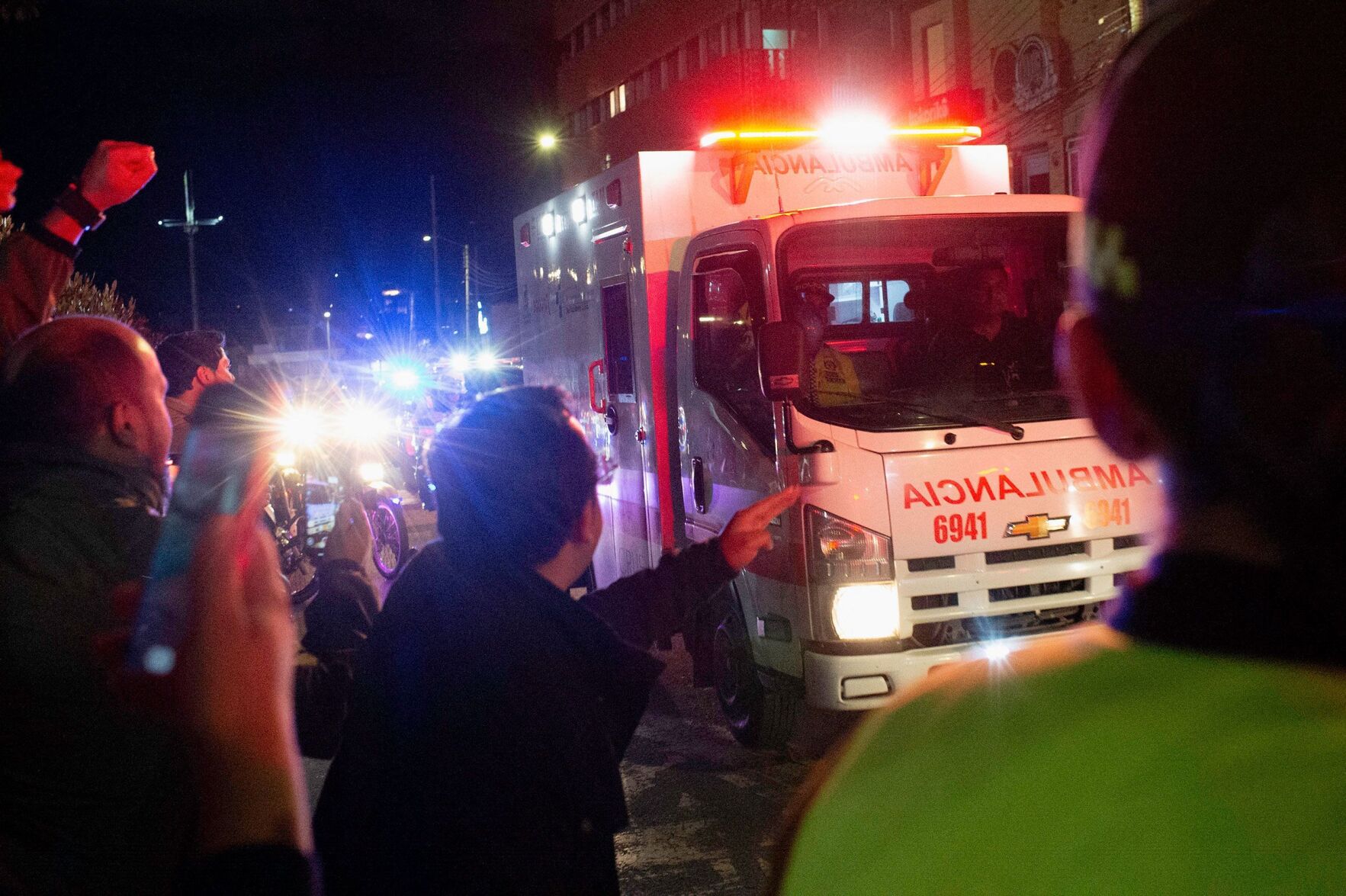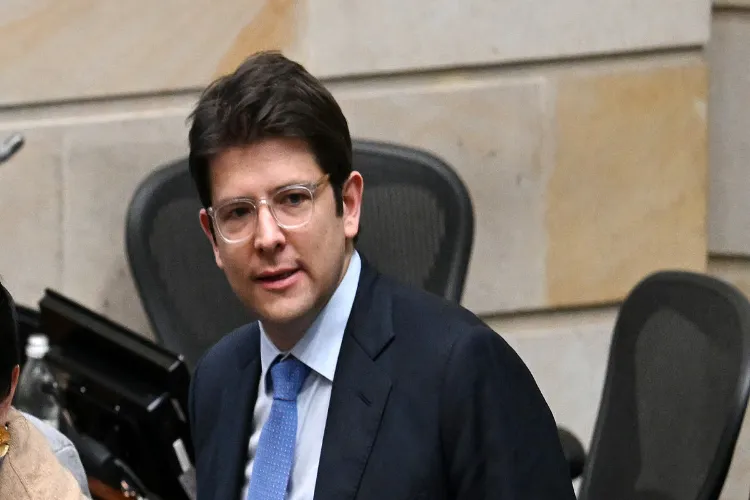Shooting of Colombian Senator Sparks National Manhunt and Political Tensions

About the People Mentioned
Colombian president
Gustavo Francisco Petro Urrego, born April 19, 1960, in Ciénaga de Oro, Colombia, is the 34th and current president of Colombia, having assumed office on August 7, 2022[3][5]. He is the first leftist to hold the presidency in the nation’s history, representing the Historic Pact for Colombia coalition and marking a significant shift in the country’s political landscape[1][3]. Petro’s early life was marked by his involvement with the Marxist guerrilla group M-19, from which he later transitioned into mainstream politics[3][4]. Over his career, he has served as a senator and mayor of Bogotá, establishing himself as a vocal advocate for social justice, environmental policies, and government transparency[3][4]. Petro won the 2022 presidential election in a runoff against Rodolfo Hernández, securing 50.44% of the vote and highlighting his strength in urban and peripheral regions, though facing political resistance in more conservative areas[1]. His campaign and presidency have been notable for emphasizing economic justice, peacebuilding, and environmental sustainability, aligning with broader demands for social change in Colombia[1]. However, his administration has also faced significant challenges, including a fragmented congress that has stalled key legislative reforms, rising crime rates, and internal scandals involving close allies and family members[4]. Since taking office, Petro has drawn both domestic and international attention for his ambitious policy proposals and sometimes controversial rhetoric. Notably, he has floated the idea of convening a constituent assembly to rewrite Colombia’s constitution, though such a move would require congressional approval and has raised concerns among constitutional experts[2]. His government has also been active on the international stage, including addressing the United Nations on issues like drug policy and regional diplomacy[6]. Recent events have tested Petro’s leadership, including a major cabinet reshuffle amid scandals, protests over unmet social demands, and ongoing security challenges[4]. Despite these difficulties, Petro remains a central figure in Colombian politics, symbolizing both the potential for progressive change and the complexities of governing in a polarized society. His term is set to last until 2026, with his ability to build legislative alliances and address Colombia’s deep-seated issues likely to define his legacy[1][4].
Miguel Uribe
Miguel Uribe Turbay (1986–2025) was a prominent Colombian politician known for his conservative stance and leadership roles at both local and national levels. Born in Bogotá into a politically and journalistically influential family—he was the grandson of former President Julio César Turbay Ayala and son of journalist Diana Turbay—he pursued studies in law and public policy at the University of the Andes and Harvard University. Uribe began his political career at age 25 when elected to Bogotá's City Council in 2012. He quickly gained recognition, being named "revelation councillor of the year" and later elected president of the council. He was a vocal critic of Bogotá's then-mayor Gustavo Petro. From 2016 to 2018, he served as Bogotá’s Secretary of Government under Mayor Enrique Peñalosa, becoming the youngest person to hold that position. During his tenure, Bogotá saw a slight decrease in homicide rates, though concerns about rising thefts and insecurity persisted. In 2022, Uribe was elected as a Senator representing the Democratic Centre party, becoming the most voted senator on an open list nationwide. He was a leading opposition voice against the leftist government of President Gustavo Petro, focusing on security, press freedom, and the protection of entrepreneurs. In March 2025, he announced his pre-candidacy for the 2026 presidential election within his party. On June 7, 2025, during a political rally in Bogotá’s Fontibón district, Uribe survived a serious assassination attempt when a 15-year-old assailant shot him multiple times. Despite critical injuries and surgery, he remained a significant figure until his death later in 2025. He was married to María Claudia Tarazona and had a son, Alejandro. His family history was marked by tragedy, as his mother was killed in a 1991 kidnapping linked to Pablo Escobar’s cartel[1][2][3][4][6][8].
15-year old boy
A "15-year-old boy" is typically a male adolescent in mid-teenage years, often attending high school and undergoing significant physical, emotional, and social development. At this stage, many 15-year-olds engage in diverse activities such as academics, sports, arts, and social causes, laying the foundation for their future roles in society. Notable 15-year-olds can vary widely in their achievements and influence. For example, Carlo Acutis, who passed away at 15, is a recent figure of historical and cultural significance; he was an Italian Catholic teenager known for his devotion to the Eucharist and pioneering use of digital media to promote religious devotion. Beatified in 2020 and canonized as a saint in 2025, Acutis is recognized as the "patron saint of the Internet" for his early integration of faith and technology[5]. In contemporary contexts, some 15-year-olds become influential through social media, activism, or entertainment. Though specific 15-year-old figures were not detailed in the search results, teen influencers aged around 15 to 17 are shaping trends and social issues. For example, teens like Kheris Rogers, who gained fame at 10 and is now 17, have promoted diversity and empowerment through fashion[1]. Others, such as Jaylen Arnold, have impacted social issues by advocating against bullying from a young age[3]. Many 15-year-old boys are also recognized locally and nationally for excellence in academics, athletics, arts, or community involvement, as shown by programs like Riverside's “25 Most Remarkable Teens” which honors youth in grades 8-12 for diverse achievements[7]. In summary, a 15-year-old boy represents a young individual in a dynamic stage of growth, with potential for notable accomplishments in various fields including culture, activism, arts, and academics. Specific notable figures at this age include those emerging in social media, activism, or historical-religious contexts.










